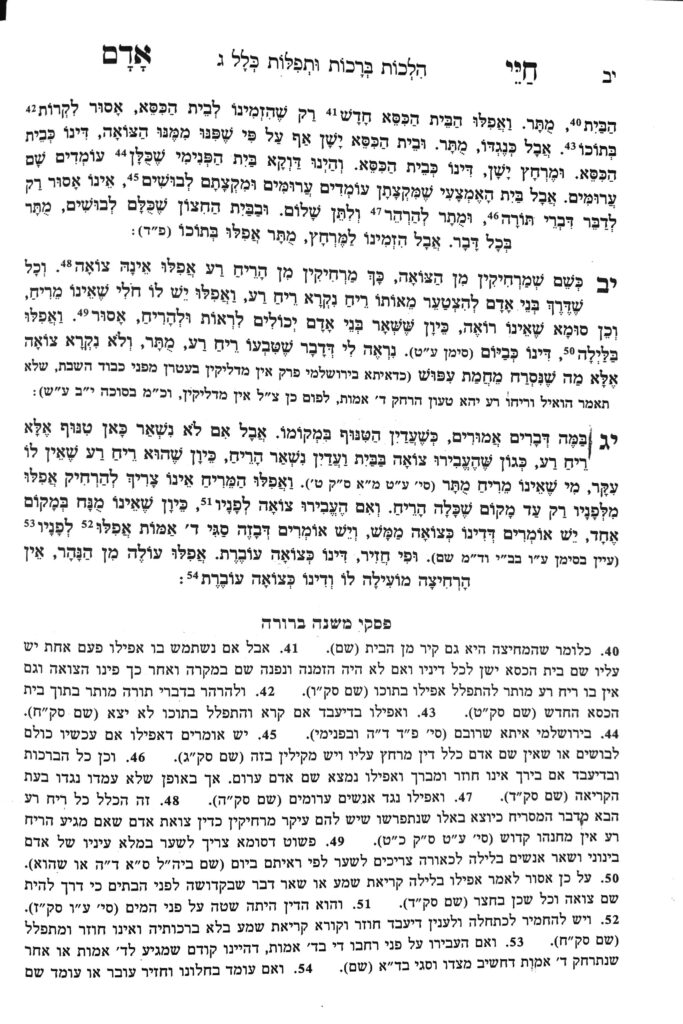We have finished siman 13. We learned that the Chayei Adam suggested that if tzoah is being moved, one may only have to distance four amos from it. The reason one could be lenient would be because its non-fixed state makes it a reiach she’ein bo ikar.
To review, Chazal understood that the issur deoraysa of tzoah is not only the actual tzoah, but its smell as well. Therefore, the space of the physical tzoah expands to wherever the smell goes. Thus, regardless of whether one can smell the item, if it can be smelled by others, Chazal understood that the item itself extends until the end of the smell, so one must distance from it.
However, when the reich ra is a reiach she’ein bo ikar, the actual tzoah does not extend anywhere, because there is no actual source item to extend.
There is a practical application to the difference between a reiach she’yeish bo ikar and ein bo ikar, which is when one cannot smell the smell, or if one sprays something in the air to temporarily overpower the smell. When it is a reiach she’yeish bo ikar, it is still assur to recite devarim shebikedusha, as it as though there is actual tzoah right in front of the person. If it is a reiach she’ein bo ikar, it is muttar, because the source item does not extend. As long as one cannot smell it, it is muttar to recite devarim shebikedusha. This idea is similar to the person who does not smell.
We need to discuss another few points. We learned that one must distance not only from tzoah, but from any bad smells which emanate from decay. When it comes to a natural bad smell, if the smell is due to decay, it is considered equivalent to tzoah. For example, the natural decay of a carcass is equivalent to tzoah. The Mishnah Berurah discusses a butcher shop in which fats and other leftovers are not refrigerated and begin to decay. He also discusses a certain type of jelled fish made out of fish fat, which gives out a very bad smell while being processed. If it is a smell which people generally find disgusting or repulsive, it is considered tzoah. Fermentation of certain foods can fall under this category; for example, the Mishnah Berurah writes that there are certain points in the fermentation of wine which smell repulsive to most people. The wine has a din tzoah at that point.
Rav Zilberstein discusses the smell of sweat on a person’s body, and understands that it does not have a din of tzoah, because it does not come about through decay. However, if a person’s socks smell, the smell is the product of an element of a reaction between the sweat and the socks, which is similar to the decay process. Therefore, he suggests it may be necessary to distance from such a smell.
In siman 14, the Chayei Adam will discuss the distance one must place between themselves and tzoah.
Summary
- One must distance from tzoah which has a reiach ra until they no longer smell the tzoah, plus four amos.
- If the reiach ra is a reiach she’ein bo ikar, one only needs to distance themselves until they no longer smell it.
- Any natural bad smell which is the result of decay is considered tzoah and falls under these halachos. Even if the bad smell is temporary, and will eventually turn into something good or desirable, it is considered tzoah for the time it has the bad smell.



